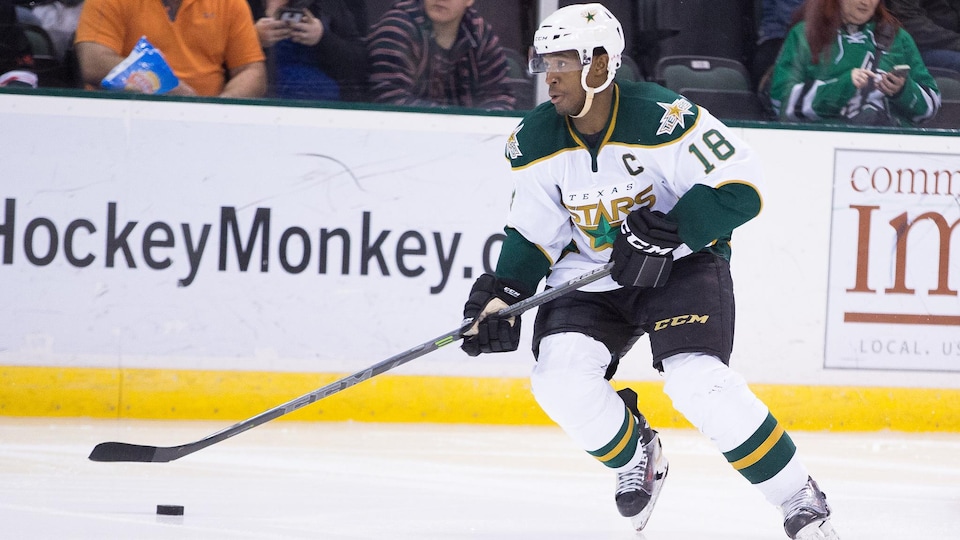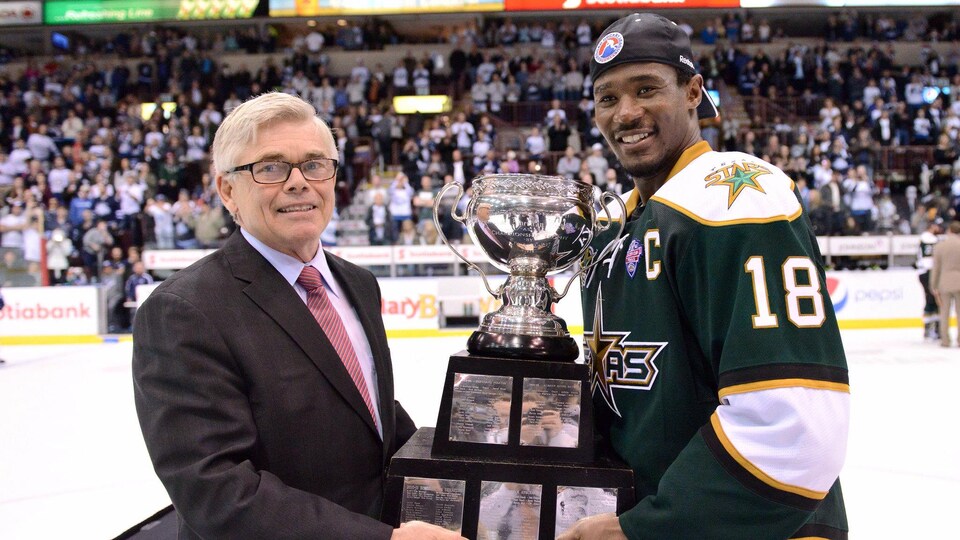CEDAR PARK, TEXAS – The phrase spinning was tailored to describe the reality of American Hockey League (AHL) players spending long hours on the road on the bus.
After 15 seasons and more than 1,000 games in the AHL and a three -year stint in Germany, Maxime Fortunus is back in this league.
Did he miss the long bus ride? Quebecer burst out laughing. Luckily for him, the Texas Stars, based in Austin’s Cedar Park suburb, have lost their main geographic rivals in recent years.
The team, usually, now travels by plane. Bus addiction is not the main reason for having the 38 -year -old former hockey player behind the bench of an American League team, just months after his career as a player.
In hockey, it’s often said that coaching is the second best job in the world after playing, Fortunus says. Stress during the fight is present. You want to win so badly, unless you can’t go on the ice. When you see your players practicing with what you’ve shown them, it’s really nice.
And the destination was not coincidental. He played six seasons in Austin and here his three children were born.
He even won the Calder Cup, the holy grail of the American League, in 2014 as the Stars captain. This championship earned him the respect of hockey fans in the region.
The Austin area is also a vibrant marketplace for sports. People were between 5,000 and 6,800 spectators according to John Peterson, the team’s communications manager and game descriptor.
On the visit of Radio-Canada Sports, the arena was filled to 80% of its capacity and the public was very vocal.
The move was superb, Quebecer said after a victory against the Milwaukee Admirals at the end of March. However, an adjustment returned to Texas six years after leaving. It was really a lifestyle change. There is a big difference between being a player and a coach.
If the length of his days in the arena increased significantly, if his brain was always looking for solutions about game systems, the man would not have changed.
He is a reliable but quiet defender on the ice. He seems to have kept his qualities behind the bench. In one match, he was focused, but had little to say to the players in front of him.
I’m pretty calm and mostly trying to share technical details here and there. I’m not going to start screaming. I’m not that much as a player and I try to keep the same philosophy as a coach. I’m learning a lot about life as a coach, I’m also learning to control a bankHe added.
He is destined to be Max, confirmed Jeremy Grégoire, the only French speaker in the organization. You need to ask him if you have and that’s perfect for a first year coach. He works hard, he is proactive and we love that. The more years of experience he has behind the tie, the more to say he will have.
We have very similar backgrounds because we both went through Baie-Comeau in the QMJHL and then I spent a lot of time in the American League like him. Playing 1000 games in the AHL is overwhelming, almost dog years. We kind of annoy him with that. It’s amazing how long he’s been.
In 18 professional hockey seasons, Maxime Fortunus has played just nine games in the NHL, including one in Montreal with the Dallas Stars in January 2010. He has had a great career in the American League, especially since he’s lucky not to move often.
That’s how life is fun in the American League, very good life. It’s a step below the National League, but the chemistry with an American League team is something very unique. You can be close to your teammates. On the road is where you develop chemistry with your team.
An example to follow behind the bank
Maxime Fortunus, who hails from Haitian, has always been one of the rare representatives of diversity, especially his cousin Patrice Bernier, to climb the hockey ladder in Quebec. If diversity is rare on the ice, it’s more behind the bench and in the hockey departments of professional teams.
At the last major cleanup organized by Geoff Molson at the Canadiens ’offices, the owner announced his intention to make more room for diversity in his hockey organization chart.
Will we one day see Maxime Fortunus behind the CH or Laval Rocket bench? The hypothesis is too far -fetched for the main interested party, who is just beginning his teaching career.
I’m someone who wants to take it step by step, he says. I don’t want to skip steps as a player, and it’s like being a coach. I learned a lot from my teammates Neil Graham and Travis Morin who just listened to their interactions with the players. Learning every day is the goal for me.
Of course, he wanted to see more diversity on the ice and behind the bench. Discussion on the subject is important according to him. He is always there to set an example or counsel those who want to follow in his footsteps.
While greater diversity is important and desirable in his view, it should not be the primary selection criterion for a team.
During his playing career, Maxime Fortunus proved his worth by being a righteous and respected teammate.
I always tell people that the Stars didn’t take me for it, they took me for the respect I showed when I played here and because they believe that young people can learn from my background.experience. But at the end of the day, you need to hire the right, best qualified people. That’s what matters, not knowing where they came from.
That being said, the fight against racism is a topic that must be addressed in daily life and not just in sport. As society talks about it, we get to know each other better. Don’t be afraid to open up and ask questions.
This is exactly what he is trying to do in his new job as a coach.
If he rises to the ranks that seem to have the potential to do, he will be another example of perseverance in the world of hockey, and not just for young people from diverse backgrounds.
Source: Radio-Canada

